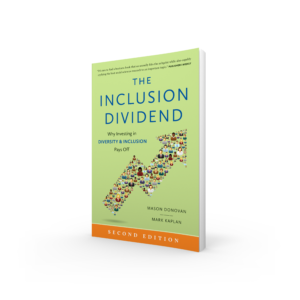 The conversations revolving around same sex marriage has never been at a higher volume than in these past few weeks; mostly due to two cases (Prop 8 and DOMA) recently heard by the Supreme Court. The findings are expected to come out in June. June also just happens to be, coincidentally enough, Gay Pride month. This is a month corporations globally invest in events, typically organized by their GLBT employee network, to provide education on GLBT in the workplace.
The conversations revolving around same sex marriage has never been at a higher volume than in these past few weeks; mostly due to two cases (Prop 8 and DOMA) recently heard by the Supreme Court. The findings are expected to come out in June. June also just happens to be, coincidentally enough, Gay Pride month. This is a month corporations globally invest in events, typically organized by their GLBT employee network, to provide education on GLBT in the workplace.
If both Prop 8 and DOMA are left unchanged, there will be little impact for corporations. However, if DOMA (the federal definition and recognition of marriage) is overturned, it will create some opportunities on several levels.
Externally, those corporations who sell services to married couples (think insurance and/or financial advice) will now have an expanded group of federally recognized marriages. Providing inclusion development to their sales and marketing team will help them successfully reach out to this new target market.
Internally, organizations which offered domestic partner benefits to their employees will need to readjust their tax formulas. No longer will same sex married couples be paying a tax on their spousal coverage. This could act as an immediate savings for progressive companies that have been covering the extra tax.
Companies that do not offer same sex benefits will be required to recognize legal marriages regardless of sex. If the Court follows conventional wisdom and allows the states to determine their own marriage laws, these companies may need to develop a whole new set of policies. It may create some dilemmas. If a same sex couple is married in Massachusetts and you provide marriage benefits, do you then take away those benefits if that employee relocates to a state that has not yet legalized same sex marriage?
Recent polling data in the US has shown that a majority of people support same sex marriage. In less than 5 years, the change of attitudes from those in political office to the population as a whole has been dramatic. Those companies who do not have progressive policies could quickly find themselves well behind the curve. This won’t reflect well in a rapidly changing, increasingly global and diverse business world. Employees and customers might begin to seek out other companies who are perceived to be progressive industry thought leaders.
Overall, corporations may find a surprise dividend in the energy that has been diverted to the conversation of same sex marriage issues internally or externally. It may simply move to an area of compliance and allow them to refocus the energy on a holistic inclusive culture.
—
If you would like to read about the opinions of F500 executives on GLBT inclusion, check out our interview series here.


Recent Comments